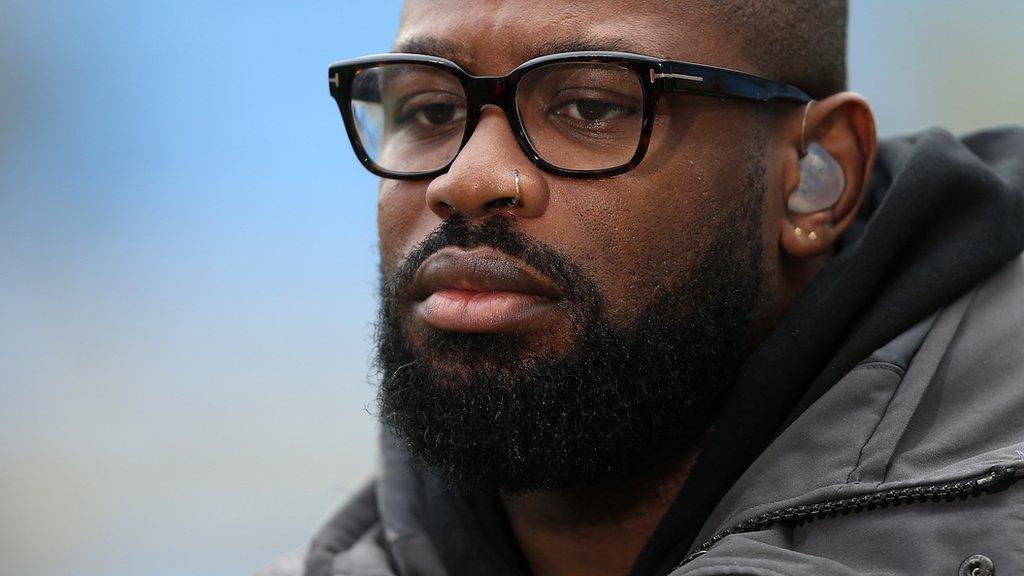Bristol firm sees demand for darker skin products soar
- Published
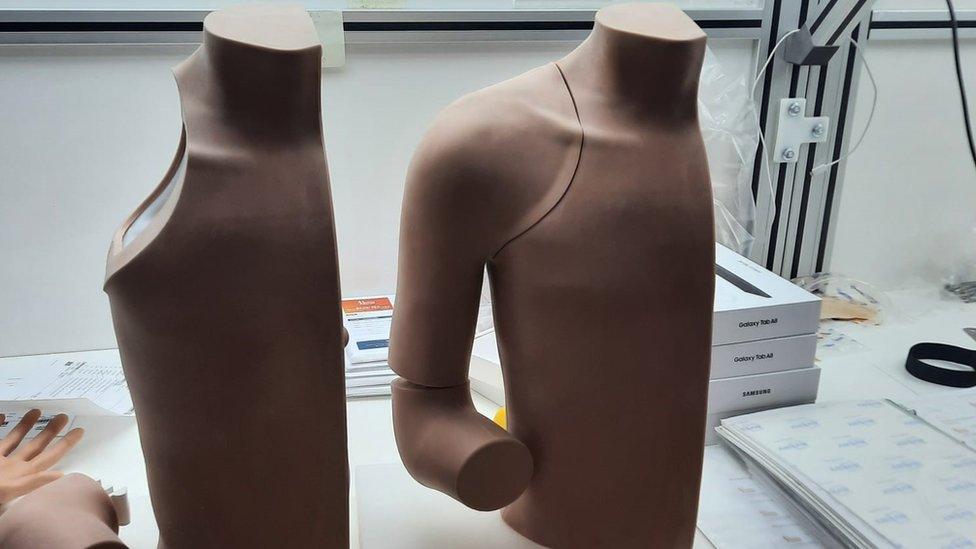
A Bristol firm which makes replica body parts for medical training says that demand has soared after it diversified its range of skin tones.
Limbs and Things said 30% of its sales in the UK and US were now for medical aids with darker skin.
It only started supplying the darker shades a few years ago.
Nick Hull, the firm's managing director, said that staff "need to practise and train on something that is representative of their patients".
"Procedures are actually different according to the tone of the skin," he explained.
"Quite a simple example might be finding a vein. It can be harder in a darker skin than a lighter skin.
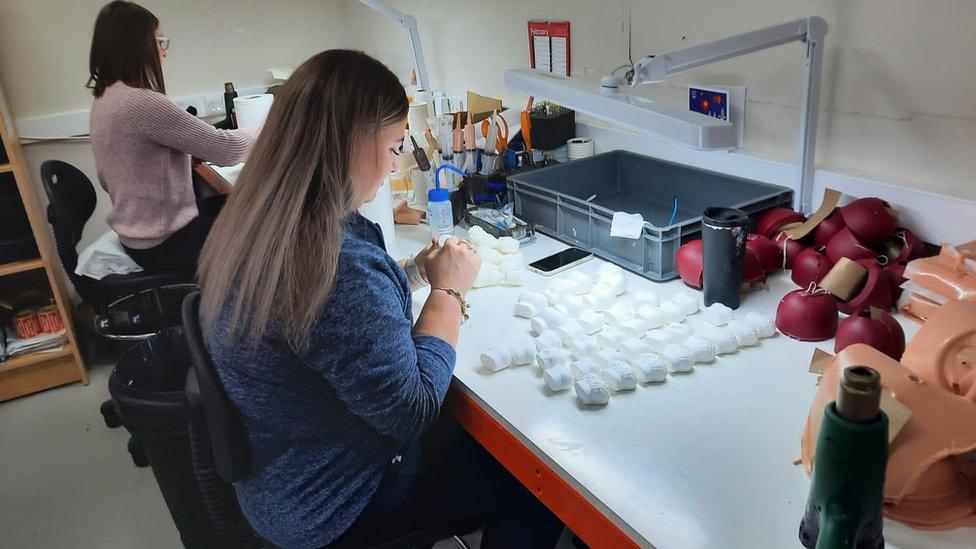
"From a realism perspective, it is quite important to show trainees how to address that."
Its central Bristol factory produces a range of body parts including cervixes, arms and even bottoms - all in a range of colours.
They are exported across the world to help train medical staff preparing to treat real people.
But until a few years ago, they offered only offered customers shades of pink.
That was until a hospital group in New York called and requested darker tones to better reflect their patients and staff.
This came before Black Lives Matter protests swept across the world following the murder of George Floyd by a white police officer in May 2020.
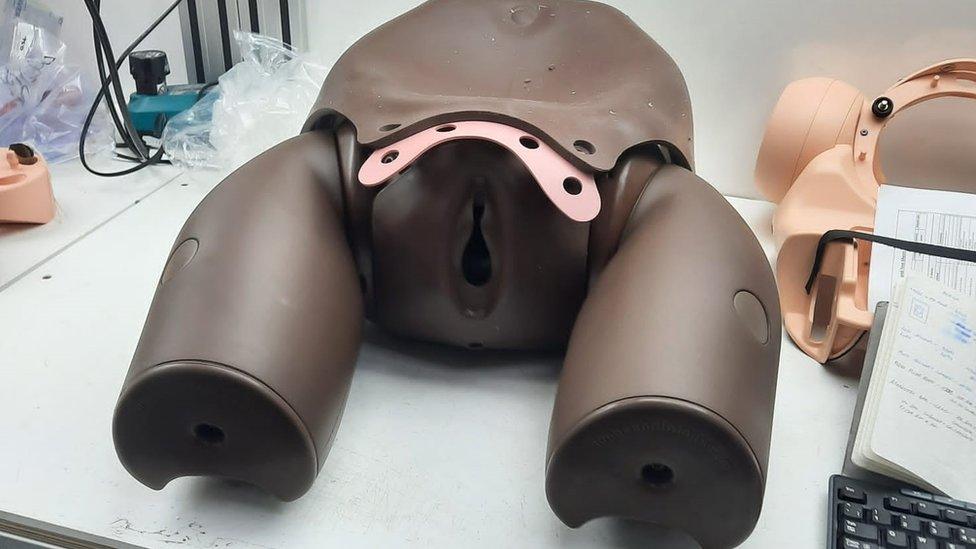
The firm began making training products in darker skin tones shortly before the BLM protests of 2020
Mr Hull said that demand for the darker skin tones has "soared" since they started catering for it.
"You can't help but think (the) Black Lives Matter (movement) was a part of that," he said.
"We were a bit ahead of the game - key opinion leaders said there is an important need for this."
The firm currently exports 70% its products to 50 countries around the world, with some of its darker skin products being put to use on training wards at the University of the West of England.
Rakhee Aggarwal, deputy head of Health and Social Care at the university, said: "It's important because we need our equipment to reflect that community.
"Veins or rashes on skin all look different on different skin types. We do need our students to be ready for that world of difference."

Follow BBC West on Facebook, external, Twitter, external and Instagram, external. Send your story ideas to: bristol@bbc.co.uk
Related topics
- Published18 June 2021
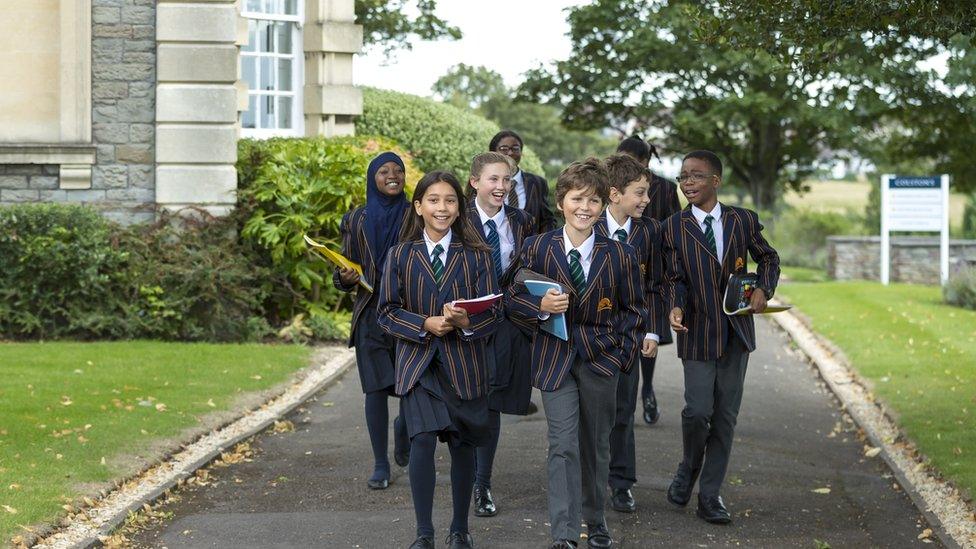
- Published24 November 2020
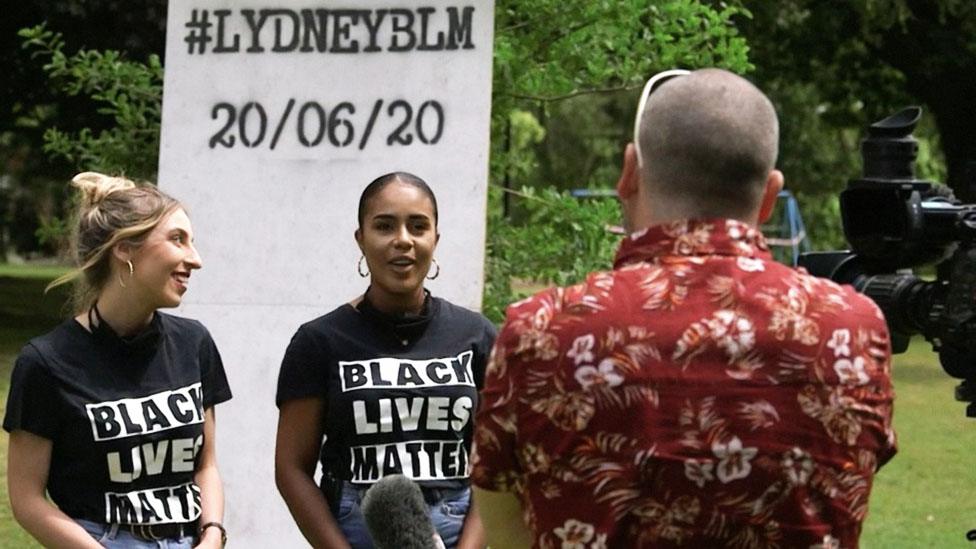
- Attribution
- Published11 August 2020
